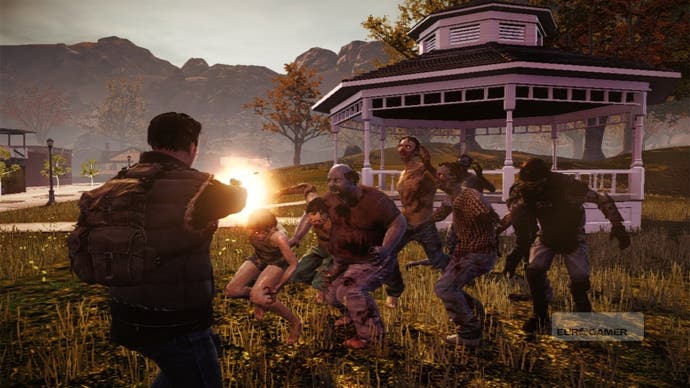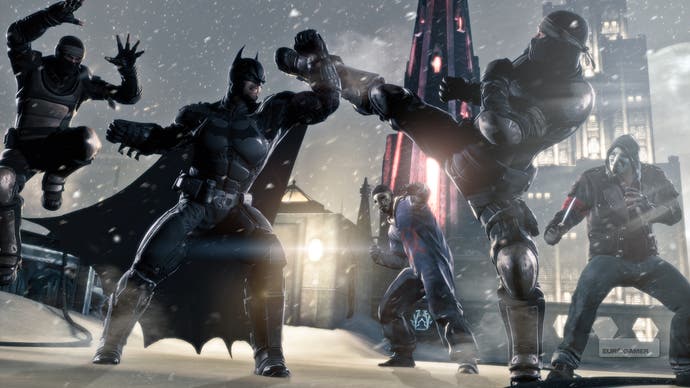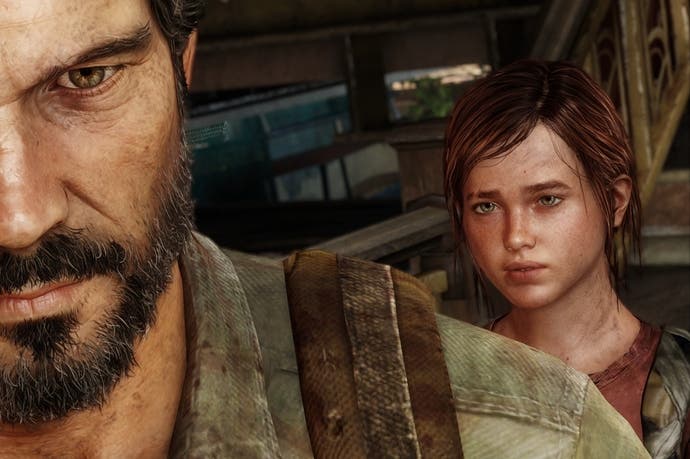Systems vs. stories
What can we learn from comparing The Last of Us with State of Decay?
"I can tell you I'm really excited about our story." That's Eric Holmes, creative director of Warner Bros' Montreal studio, talking about Batman: Arkham Origins in a GameSpot interview this week. As a fan of Rocksteady's previous Batman games, I'm excited that Holmes is excited. "I think it's a very important Batman story," he continues, "and I think fans are going to love that probably more than any other thing in the game."
It's here that I do a double take. Fans are going to love the story more than any other thing in the game? Even more than, you know, the actual game? I'm all for better stories and stronger writing in games - God knows we need it - but let's not lose sight of what makes games unique in our rush to narrative validation.
Every new artform endures by carving out a creative niche that only it can satisfy. Film captured the imagination because, while it evolved from photography and theatre, it had something that those existing and well-established forms of art did not. It had movement and editing, the ability to take static images and make them appear alive, and the ability to arrange those images, juxtapose them, contrast them, shuffle them around in the blink of an eye. As these tools evolved, so too did the art of film.

Games, as a medium, have been sadly subservient to film ever since the death of cartridges. Once games started using CDs and later DVDs as the storage medium of choice, it's as though a switch was flipped. Games could now make proper use of recorded music and video footage, and much of the industry - not all, but enough - began salivating. The weary old canard of the "interactive movie" was suddenly tantalisingly possible. Games could tell stories just like movies! That means games would be equal to movies!
The industry's low self-esteem on this matter is depressing even today. It's notable that calling a game "cinematic" is considered high praise, while saying a movie is "like a video game" is one of the worst insults a film critic can wield. There's a perceptual imbalance there, and it's one that gaming - both industry and players - have yet to fully confront. The simple truth is that games are not films, and they never were. You can trace cinema back through to theatrical traditions, but there's literally no connective tissue, no evolutionary chain, that says games are the natural offspring of movies.
Film succeeded because its best practitioners focused on the medium's unique aspects and developed them into a new coherent artistic language. Games, in general, haven't done that. Over the last 15 years or so, our most high-profile efforts have latched on to the coattails of cinema, taking pride in the moments when the result has come close to emulating this mismatched inspiration.
What makes games unique is not storytelling. Games are, by and large, not the best medium to tell a story. The demands of the medium mean you either need to constantly break up the narrative for long passages of loosely related player action, or you reduce player agency to such a degree that the experience becomes more akin to a lavish theme park ride.
No, what games are good at is suggesting stories. The thing that games have above all other media is interaction, which is to say that games have systems. Systems that dictate the rules of a fictional world. Systems that allow the audience to prod the world and feel it push back. Systems are what make games into games, rather than movies with joypads.

Yet many games, often those at the high-cost, high-risk end of the AAA scale, have become fixated on the idea that the future of games as a creative force lies in using various cinematic techniques to add narrative context on top of proven gameplay systems. Duck and shoot. Loot and craft. Sneak and stab. Now here comes the story. That approach certainly lends itself to eye-catching trailers, and games that carry a thrilling echo of a big-screen adventure, but it sells short the potential of gaming.
Rather handily illustrating the point, in the same week that Sony's dazzling The Last of Us dominated both reviews and charts, Undead Labs released its own zombie apocalypse game, State of Decay, on Xbox Live.
The Last of Us is a beautiful piece of work, full of astonishing visuals, richly drawn characters and a story overflowing with genuine emotion, honestly earned. It's a polished gem of a game, the state of the blockbuster art. State of Decay, by comparison, is kind of a mess. The graphics engine can barely hold itself together, characters and objects lurch through the scenery constantly, the frame-rate stutters, and the script and acting are rudimentary at best. Judged on every expected storytelling criteria, The Last of Us is clearly superior, so why do I feel that State of Decay is the better game?
Probably because it has more interesting systems churning away under its rather ramshackle exterior, and they push back harder against the player. Every supply run, every mercy dash to find some lost survivor, could mean the death of one or more characters. I might take a gamble on snagging some building materials and lose everything. A car might be overturned in the middle of nowhere, forcing me to think on my feet to get home safely. I care about the characters, not because the script tells me to or because they're convincingly played, but because they're in the game world with me. They're part of my story, rather than me being an observer of theirs.
The scripted story in State of Decay is nothing special. The stories that play out in between, however, are spectacular and exciting, like no other stories I've ever seen, and they're all the more enjoyable for being ephemeral things, existing only in my head in that moment. That's where games excel - inside the player's mind - and that's why the best stories in video games are the ones that can only be told in video games, handing over narrative control to the audience.

With games like The Last of Us, as beautifully framed as their stories are, I'm always aware that I'm being told a story, rather than finding my own. That's fine and valid, but I know my role is to keep Joel and Ellie alive in between cut-scenes so that the game can continue, not to prod at them and feel them push back. The important parts of their story - the emotional beats, the heartbreaking twists - would work just as well in film or on the printed page, and the only major narrative change would be a drastic drop in the number of cover-based shootouts and stealth takedowns. The Last of Us doesn't need to be a game to work.
Similarly, there are dozens of Batman comics, movies and cartoons to choose from. I don't need a game to tell me a great Batman story. State of Decay, on the other hand, has to be a game. It has no choice. Without its gameplay, there's nothing there. Your interaction with that world is what defines it. That's how it should be. There's room for both sorts of game, of course, but only one of them suggests a future where games are defined, first and foremost, by their gameplay.
Artists create art, and it's difficult to delegate such an important part of your process to the player's own imagination. It's more reassuring to lay it all out, to say "here's the story, right here, come and see" than to willingly vanish and step back into the role of facilitator rather than narrator. Yet that's where gaming's strength lies, not as storyteller but as story generator. That's our point of difference, the one thing that Hollywood, with its celebrities, glamour and cultural cachet, can't begin to replicate.
Only when games accept that unique strength, take pride in it, and stop borrowing the clothes of others, will they truly achieve their potential as the only truly new creative medium of the last 100 years.











-3-31-23-screenshot.png?width=291&height=164&fit=crop&quality=80&format=jpg&auto=webp)





